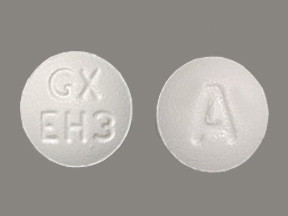MELPHALAN - ORAL
PHONETIC PRONUNCIATION: (MEL-fa-lan)
COMMON BRAND NAME(S): Alkeran
GENERIC NAME(S): melphalan
Uses
USES: This medication is used to treat certain types of cancer (such as multiple myeloma, ovarian). Melphalan belongs to a class of drugs known as alkylating agents. It works by slowing or stopping the growth of cancer cells.
How to use MELPHALAN - ORAL
HOW TO USE: Take this medication by mouth as directed by your doctor, usually once a day. Unless otherwise directed by your doctor, drink plenty of fluids to help prevent side effects. The dosage and treatment schedule are based on your medical condition and response to treatment. Carefully follow your doctor's directions for taking this medication. Do not increase your dose or take this medication more often than prescribed. Your condition will not improve any faster, and your risk of serious side effects will increase. It may take several months before you see a benefit from this drug. Since this drug can be absorbed through the skin and lungs and may harm an unborn baby, women who are pregnant or who may become pregnant should not handle this medication or breathe the dust from the tablets.
Side Effects
Precautions
Interactions
Overdose
Images
Reviews
Faq for MELPHALAN - ORAL
Melphalan - Oral is a chemotherapy drug used to treat multiple myeloma, a type of cancer that affects plasma cells in the bone marrow.
Melphalan works by interfering with the DNA replication process in cancer cells, ultimately causing their death or preventing their growth.
The dosage of Melphalan - Oral may vary depending on factors such as body weight, general health, and the specific condition being treated. It is important to follow the instructions provided by your doctor or pharmacist.
Common side effects of Melphalan - Oral may include nausea, vomiting, diarrhea, loss of appetite, hair loss, fatigue, and mouth sores. It may also cause bone marrow suppression, leading to a decreased production of blood cells.
Melphalan - Oral is not recommended for use during pregnancy as it may harm the developing fetus. It is also not advised to use this medication while breastfeeding, as it can pass into breast milk and harm the nursing infant. Talk to your doctor for guidance.
Melphalan - Oral should be used with caution in patients with liver or kidney problems, as it can worsen these conditions. It is important to have regular blood tests to monitor your blood cell counts while taking this medication.
Drinking alcohol may increase the risk of liver damage caused by Melphalan - Oral. It is recommended to avoid or limit alcohol consumption while on this medication.
Yes, Melphalan - Oral is available as a generic drug under the name melphalan.
Melphalan - Oral should be stored at room temperature, away from light and moisture. Keep it out of reach of children and properly discard any unused medication.
Warning
WARNING: Although melphalan is used to treat cancer, it may rarely increase your risk of developing other cancers. Also, melphalan may cause a severe decrease in your blood cells, which lowers your ability to fight infections and increases the risk of anemia/bleeding problems. You may be more likely to get a serious (rarely fatal) infection or any infection you have may get worse. Tell your doctor right away if you develop unusual growths or lumps, swollen glands, signs of infection (such as a sore throat that doesn't go away, fever, chills), easy or unusual bruising/bleeding, or unusual tiredness. Taking melphalan during pregnancy may increase the risk of birth defects. Also, it may make it harder for men or women to have a child (decreased fertility) after treatment. Talk with your doctor about the risks and benefits of treatment with this medication.
Disclaimer
IMPORTANT: HOW TO USE THIS INFORMATION: This is a summary and does NOT have all possible information about this product. This information does not assure that this product is safe, effective, or appropriate for you. This information is not individual medical advice and does not substitute for the advice of your health care professional. Always ask your health care professional for complete information about this product and your specific health needs.


No Reviews Yet